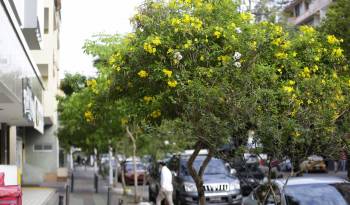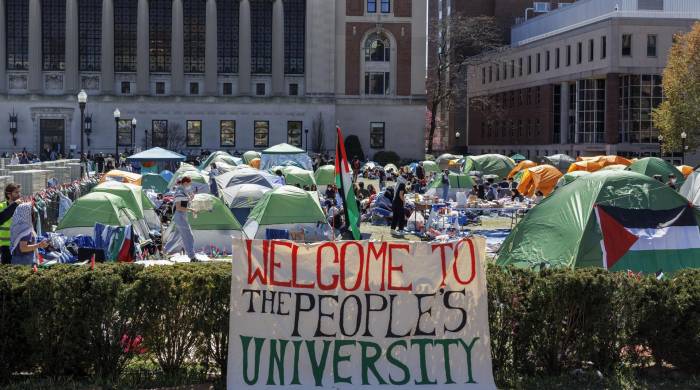La floración de los guayacanes se convierte cada año, entre los meses de marzo y abril, en un espectáculo visual que pinta de amarillo el horizonte de...
- 04/10/2008 02:00
- 04/10/2008 02:00
PANAMA. Members of Panama’s civil society are showing contempt over the government’s new tactics to promote its widely criticized security bill, approved by the Executive branch August 18 and 20 and currently on the floor for discussion at the National Assembly.
They suspect a recently released police report showing that the number of kidnappings in Panama has increased, with more than 42 taking place within the last three years.
They believe the news is part of a government plot to get the bill’s approval by inculcating fear among the population.
Businessman Roberto Eisenmann believes that now that the government has created new security laws that are in the hands of the legislators, violence on the streets has shot up out of proportions.
“The government has made a mistake with these laws. Delinquency has not diminished,” he said.
Meanwhile, the university professor and independent candidate for Panama City’s mayoral office, Miguel Antonio Bernal said that this is a campaign orchestrated by President Martin Torrijos and the Minister of Government and Justice Daniel Delgado Diamante to justify the so-called DDD laws.
“The government tries to confuse public opinion,” Bernal said.
Delgado Diamante denied that the statistics are being used to justify the changes.
“We are going to continue fortifying the Public Force to combat Narcos and organized crime,” he stated.
Earlier this week, the National Assembly met to start discussions on the security bill.
Jose I. Blandon, member of the opposition Panameñista party, solicited to start debating the five security decree laws.
The legislator Wigberto Quintero in turn stated that last week he had submitted a request to repeal the five decree laws.
Among remarks made in the Assembly were Cesar Pardo’s, legislator from the ruling political party, Democratic Revolutionary Party (PRD), who made declarations slightly hinting at two points made by those who oppose the bill but adamantly denied by the government.
First, that the decree laws provides too much power to security forces and that it would facilitate a return to a dictatorship, and second, that the plan proposed is in one way or another related to the Merida Plan, a United States government plan to combat drug trafficking in the region.
Pardo said that during the times of the dictatorship, everyone respected police forces and the denominated gangs that today roam around Panama were not to be seen.
The legislator also stated that the insecurity problem in Panama, widely attached to drug trafficking, cannot be dumped on one person or government.
“I believe that we should ask countries who claim to be our friends to claim some responsibility.
“Those who buy the cocaine at $20 and sell it at exorbitant prices.”
As the National Assembly takes on the two initiatives submitted, one to discuss the bills and one to repeal them, the Civic Democratic Network (Red Democratica Ciudanana) continues its efforts to express Panamanians’ discontent with the security bill. They hold a vigil protesting the bills, every Wednesday outside Iglesia del Carmen.
On Thursday, they also signed a cooperation agreement with the Pro Security Youth Organization (Organizacion de Jovenes en Pro de la Seguridad) in favor of the fight against the delinquency that affects residents of Panama.
The cooperation document establishes in four articles an agreement to unite efforts to generate consciousness regarding this social problem.
Similarly, they ask the government to consider insecurity a state issue, which should be widely discussed.
In the third article of the agreement, the Youth Organization shares with the Network the premise that the security decrees hastily approved by the Executive do not represent a proper solution to the security problem Panama is facing.
At the same time, both groups agree that these laws violate the constitution.
The Network’s coordinator, Angelica Maytin, indicated that this union is an effort to both repeal the laws and to start a proper dialogue on security, one which involves everyone.
The decree laws, approved last August, create the National Frontier Service, the National Air and Naval Service the National Intelligence Service and modify the National Security Council.
They have not been well received by Panamanians given its rushed approval, led by President Torrijos and Minister Delgado Diamante, without proper consultation.



















